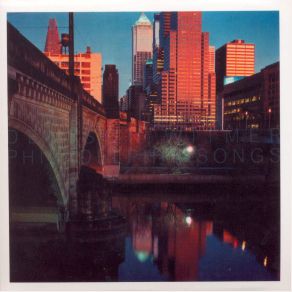Philadelphia Songs
Download links and information about Philadelphia Songs by Denison Witmer. This album was released in 2002 and it belongs to Indie Rock, Alternative, Songwriter/Lyricist genres. It contains 9 tracks with total duration of 31:11 minutes.

|
|
|---|---|
| Artist: | Denison Witmer |
| Release date: | 2002 |
| Genre: | Indie Rock, Alternative, Songwriter/Lyricist |
| Tracks: | 9 |
| Duration: | 31:11 |
| Buy it NOW at: | |
| Buy on iTunes $8.91 | |
| Buy on Amazon $8.91 | |
Tracks
[Edit]| No. | Title | Length |
|---|---|---|
| 1. | Sets of Keys | 3:27 |
| 2. | I Won't Let You Down | 4:22 |
| 3. | 24 Turned 25 | 2:06 |
| 4. | Leaving Philadelphia (Arriving in Seattle) | 3:13 |
| 5. | Chestnut Hill | 4:50 |
| 6. | Stations | 4:14 |
| 7. | Do I Really Have To? | 2:37 |
| 8. | Remember the Things You Have Seen | 3:02 |
| 9. | Saint Cecilia (Ode to Music) | 3:20 |
Details
[Edit]Released in September 2002 (with a vinyl pre-press two months before), Philadelphia Songs incorporates styles from the previous two albums — the shimmering sparsity of Safe Away and the warm '70s production heard in Of Joy and Sorrow — to create an aural townscape not unlike the album's namesake. At times impressionistic, at times complete, Denison Witmer's songs continue to blend familiar imagery with autobiographical or self-revealing lyrical passages and hooks. The alternative rock treatment of "24 Turned 25" brings to mind Elliott Smith, while the quiet acoustic intensity of "Leaving Philadelphia," with its haunting chord changes and coldly beautiful picking style, would not be out of place on an early Bruce Cockburn record. Yet, production quality almost cannot compete with the richness and depth of the cover art, as it blends sequenced drums with real drums and comes shy of delivering the fullness of Witmer's sound in live performance. The song "Stations" is resurrected from the previous album (Of Joy and Sorrow), changing faces from its earlier country-rock stylings to a stripped-down acoustic number, still retaining the lovely female harmony vocal. However, in contrast to its predecessor, the album Philadelphia Songs strives more toward the unbroken experience, and it may be said that the melodies do not distinguish themselves as immediately or interestingly as before (though this gains appropriateness from the fact that Witmer's themes often hinge on the passage of time). Fragmentary piano passages, nestled in the din of crowd noise, bookend the album, while the most thoughtful and personalized lyrics provide the flesh of the work. Like a filmmaker's film, this is a picturesque songwriter's collection, continuing to explore forms, but not straying from the formula that has so far characterized Denison Witmer's career. ~ Lisa M. Smith, Rovi